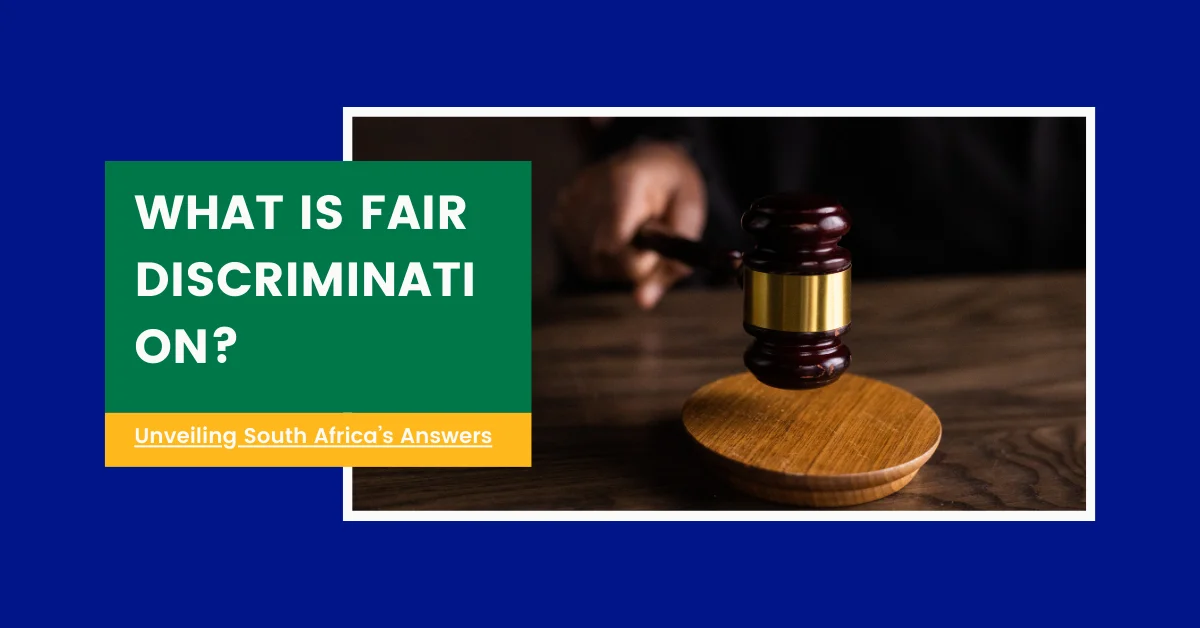The term “discrimination” often carries negative connotations of unfair treatment based on factors like race, gender, or disability. However, in certain contexts, discrimination can be legally permitted and even necessary to promote equity and equal opportunities. This is known as “fair discrimination” under South African law. In this article, we will explore what constitutes fair discrimination, provide examples, and explain its importance in creating a more just society.
Definition of Fair Discrimination
Fair discrimination refers to making reasonable and justifiable distinctions or preferences between individuals or groups based on relevant criteria, rather than irrelevant factors like race or gender. This type of discrimination is not based on prejudice or bias but on objective considerations that promote fairness and equal opportunities.
According to South African law, fair discrimination must not be based on arbitrary or irrelevant grounds and should consider the needs and circumstances of both parties involved. The purpose is to ensure fairness by allowing individuals or groups with specific qualities or advantages access to opportunities they may not have had otherwise.
Examples of Fair Discrimination
In South Africa, several examples of fair discrimination exist, including:
- Age-based discounts: Retailers often offer discounts to senior citizens or students, recognizing their different financial circumstances.
- Educational qualifications requirements: Certain jobs or professions may require specific educational qualifications to ensure competency and quality of service.
- Affirmative action policies: These policies aim to promote historically disadvantaged groups, such as providing preferential treatment in employment or education opportunities.
- Veteran preferences: Veterans may receive preferential treatment in certain areas, such as job applications or housing, in recognition of their service.
- Financial aid: Scholarships or grants may be awarded based on socioeconomic status or other relevant factors to promote access to education.
Importance of Fair Discrimination
Fair discrimination plays a crucial role in creating a more equitable society by leveling the playing field and providing opportunities to those who may have faced systemic barriers or disadvantages. Without these distinctions, individuals or groups with fewer resources or opportunities may continue to be marginalized, perpetuating cycles of inequality.
By recognizing and addressing specific circumstances or needs, fair discrimination allows for the promotion of diversity, inclusion, and equal access to resources and opportunities. This, in turn, can foster social cohesion, economic growth, and the realization of human rights and fundamental freedoms for all members of society.
Conclusion
While the term “discrimination” often carries negative connotations, it is essential to understand that fair discrimination, based on reasonable and justifiable grounds, is a legal and necessary practice in South Africa. By making distinctions based on relevant criteria, fair discrimination aims to promote equity, equal opportunities, and a more just society for all. As South Africans, we must remain vigilant in ensuring that these practices are applied fairly and consistently, without arbitrary or prejudicial considerations.
